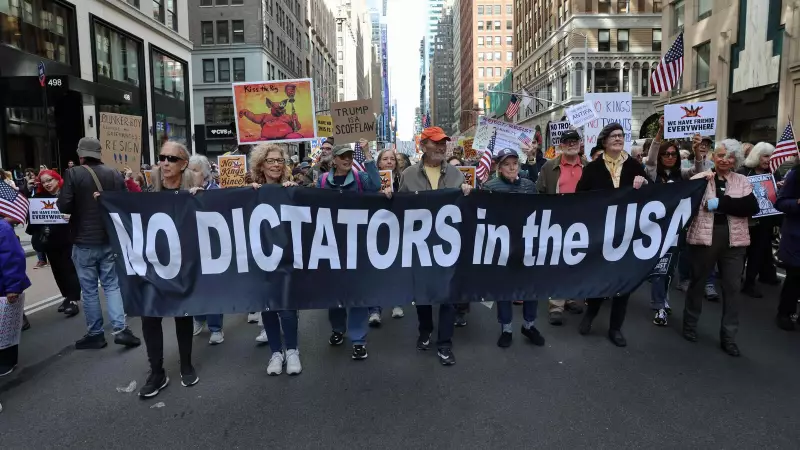
Thousands of Americans took to the streets in coordinated nationwide protests, voicing strong opposition to former President Donald Trump's policies and recent political maneuvers. The sweeping demonstrations, organized under the banner "Not My President," represent one of the largest coordinated protest movements in recent US history.
Nationwide Outcry Against Trump Agenda
From major metropolitan centers to smaller community gatherings, citizens assembled to express their concerns about the direction of Trump's political influence. Protesters carried signs and chanted slogans targeting various aspects of the former president's agenda, creating a visible display of public dissent across multiple states.
Republican Counter-Narrative Emerges
Meanwhile, Republican leaders and conservative commentators have quickly framed these demonstrations as "Hate America" rallies. Prominent GOP figures argue that the protests represent an unpatriotic response to American democratic processes rather than legitimate political expression.
This characterization has sparked heated debates about the nature of political protest and patriotism in contemporary America. The conflicting narratives highlight the deep political divisions that continue to shape the nation's discourse.
Key Issues Driving Protest Participation
- Concerns about democratic institutions and election integrity
- Opposition to specific policy directions proposed by Trump allies
- Apprehension about the impact on civil rights and social justice
- International relations and America's global standing
- Economic policies and their potential effects on various communities
Organizers Defend Protest Legitimacy
Protest organizers have pushed back against the "Hate America" characterization, emphasizing that their demonstrations represent engaged citizenship rather than anti-American sentiment. They maintain that expressing dissent through peaceful assembly represents the highest form of patriotic action.
"We're here because we love what America stands for and want to protect it," explained one organizer at a major rally. "Questioning our leaders and holding them accountable isn't hatred—it's our constitutional right and democratic duty."
Political Implications and Future Outlook
The scale and timing of these protests suggest they may have significant implications for upcoming political cycles. Political analysts are watching closely to see how these demonstrations might influence voter mobilization, candidate positioning, and party strategies in the months ahead.
As the 2024 election landscape continues to take shape, such public expressions of political alignment and opposition are likely to become increasingly common and potentially more intense.
The enduring impact of these protests remains uncertain, but they clearly demonstrate that political engagement and activism continue to play a vital role in shaping America's democratic conversation.





